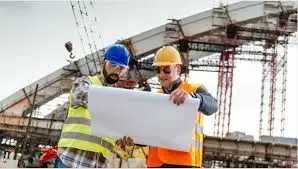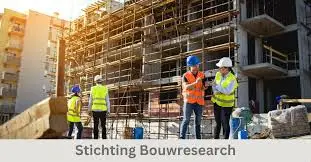Introduction
In a world where sustainability and innovation are becoming essential in every sector, the building industry is no exception. The Bouwresearch Stichting is a key player in revolutionizing this industry, striving to make buildings more efficient, sustainable, and user-friendly. This blog post will dive into what Bouwresearch Stichting is, its impact on the building sector, and how it’s shaping the future of construction.
What is Bouwresearch Stichting?
Bouwresearch Stichting is a research foundation dedicated to improving the building sector. Based in the Netherlands, this organization focuses on enhancing building processes, materials, and technologies. Its mission is to foster innovation, sustainability, and efficiency within the industry.
Background and History
Founded in 1959, Bouwresearch Stichting has a rich history of contributing to the building industry. Initially set up to address specific technical issues, the foundation has evolved to tackle broader challenges related to sustainability, energy efficiency, and building performance.
Core Objectives
- Promote Sustainable Building Practices: By researching and developing new materials and techniques, Bouwresearch aims to reduce the environmental impact of construction.
- Improve Building Efficiency: The foundation works on optimizing building performance through innovative technologies and methods.
- Advance Knowledge and Education: Bouwresearch provides training and resources to industry professionals, helping them stay updated with the latest developments.
Key Areas of Focus
Bouwresearch Stichting concentrates on several critical areas within the building sector:
1. Sustainable Building Materials
One of the foundation’s primary focuses is developing and promoting sustainable building materials. This includes:
- Eco-friendly Materials: Researching materials that have a lower environmental impact, such as recycled or biodegradable substances.
- Energy-efficient Products: Innovating products that enhance a building’s energy performance, reducing the overall energy consumption.
2. Energy Efficiency
Improving energy efficiency is crucial for reducing operational costs and environmental impact. Bouwresearch Stichting works on:
- Energy-efficient Design: Developing building designs that maximize energy use efficiency, including better insulation and smart energy systems.
- Renewable Energy Integration: Encouraging the use of renewable energy sources, such as solar panels and wind turbines, in building projects.

3. Building Performance Evaluation
Understanding and improving building performance is key to ensuring that buildings meet their intended use effectively. This involves:
- Performance Metrics: Developing metrics to evaluate various aspects of building performance, including energy use, comfort, and durability.
- Simulation Tools: Creating tools to simulate building performance under different conditions, helping designers make informed decisions.
4. Innovation in Construction Techniques
Innovation in construction techniques can lead to more efficient and cost-effective building processes. Bouwresearch Stichting explores:
- Advanced Construction Methods: Researching new construction methods that streamline processes and reduce waste.
- Technology Integration: Incorporating modern technologies, such as 3D printing and robotics, into construction practices.
Impact on the Building Sector
The work of Bouwresearch Stichting has a significant impact on the building sector in various ways:
1. Advancing Sustainability
By promoting sustainable building practices, the foundation helps reduce the environmental footprint of construction projects. This includes:
- Lower Carbon Emissions: Sustainable materials and energy-efficient designs contribute to reduced carbon emissions from buildings.
- Resource Conservation: Efficient use of resources and recycling initiatives help conserve natural resources.
2. Enhancing Building Efficiency
The foundation’s efforts to improve building efficiency lead to:
- Reduced Operational Costs: Energy-efficient buildings have lower utility bills, benefiting both owners and occupants.
- Improved Comfort: Enhanced design and materials contribute to better indoor comfort and air quality.
3. Driving Innovation
Bouwresearch Stichting plays a crucial role in driving innovation within the building industry by:
- Encouraging New Technologies: By researching and promoting new technologies, the foundation helps push the boundaries of what is possible in construction.
- Collaborating with Industry Leaders: The foundation often collaborates with other organizations, businesses, and government bodies to advance industry practices.
4. Educating and Training Professionals
Education and training are vital for ensuring that industry professionals are up-to-date with the latest developments. Bouwresearch Stichting provides:
- Workshops and Seminars: Regular events to educate professionals about new research findings and best practices.
- Technical Publications: Research papers, reports, and guides that offer valuable insights into building innovations and trends.

Case Studies and Success Stories
1. Green Building Projects
Bouwresearch Stichting has been involved in several green building projects that showcase their commitment to sustainability. These projects often feature:
- Innovative Materials: Use of cutting-edge materials that minimize environmental impact.
- Energy-efficient Designs: Implementation of designs that significantly reduce energy consumption.
2. Technological Innovations
The foundation has also contributed to technological innovations in construction, such as:
- Smart Building Systems: Development of systems that optimize building operations through automation and data analysis.
- Advanced Construction Techniques: Introduction of new methods that enhance efficiency and reduce construction time.
Challenges and Future Directions
While Bouwresearch Stichting has achieved significant milestones, the building sector still faces challenges that need addressing:
1. Integration of New Technologies
Integrating new technologies into traditional construction practices can be challenging. Bouwresearch is working to:
- Overcome Resistance to Change: Educating stakeholders about the benefits of new technologies to encourage adoption.
- Ensure Compatibility: Ensuring that new technologies work seamlessly with existing systems and practices.
2. Addressing Climate Change
As climate change continues to impact the environment, the building sector must adapt. Bouwresearch Stichting focuses on:
- Developing Climate-resilient Designs: Creating building designs that can withstand extreme weather conditions.
- Promoting Sustainable Practices: Encouraging the adoption of practices that reduce the overall carbon footprint of construction projects.
3. Enhancing Industry Collaboration
Collaboration among various industry players is crucial for driving progress. Bouwresearch Stichting aims to:
- Foster Partnerships: Building stronger relationships with industry leaders, researchers, and policymakers.
- Share Knowledge: Facilitating knowledge exchange to accelerate the adoption of best practices and innovations.
Conclusion
Bouwresearch Stichting is at the forefront of transforming the building sector through its dedication to sustainability, efficiency, and innovation. By focusing on sustainable materials, energy efficiency, building performance, and advanced construction techniques, the foundation is shaping the future of construction. Its impact is evident in the numerous projects and innovations that have enhanced the industry, driving progress and setting new standards.
As the building sector continues to evolve, Bouwresearch Stichting’s efforts will remain crucial in addressing the challenges and opportunities that lie ahead. With a commitment to education, collaboration, and cutting-edge research, the foundation is poised to lead the way in creating a more sustainable and efficient future for the building industry.







Be First to Comment